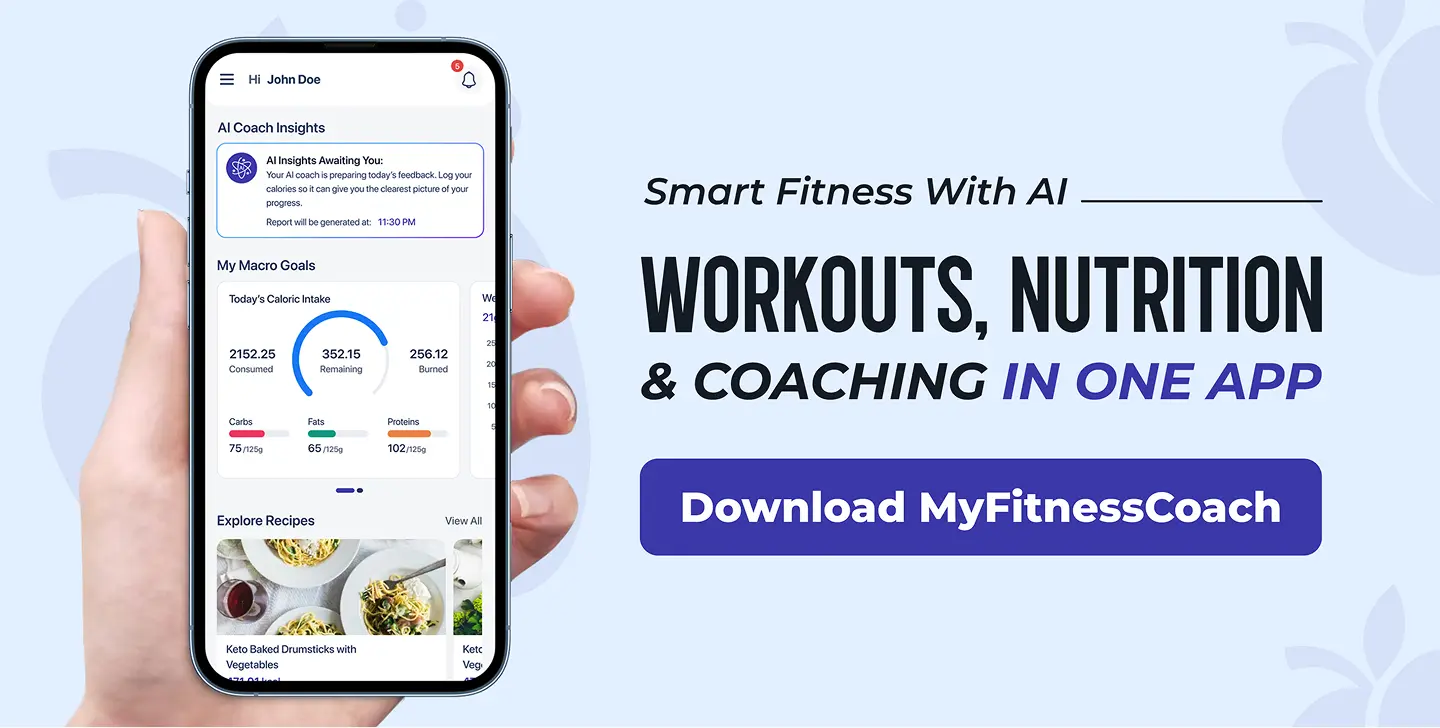Tight Oblique Muscles: Causes, Symptoms, and Remedies

MyFitnessCoach
December 12, 2023
Having tight oblique muscles can cause discomfort and pain for a lot of people, impacting their daily routines and general health. It doesn't matter if you're an athlete, someone who works at a desk, or if you generally don't move around much; it's important to know why your oblique muscles might get tight, what signs to look for, and some easy ways to make them feel better.
This article aims to explain these things simply so that you can understand and deal with tight oblique muscles more effectively. Let's take a closer look at the reasons behind tight obliques, the signs that show they're tight, and some straightforward solutions to help you feel better.
Causes of Tight Oblique Muscles:
The most common caused of tight oblique muscles are:
1. Poor Posture:
One common cause of tight oblique muscles is poor posture. Sitting hunched over a desk for extended periods can lead to imbalances in muscle tension, causing the obliques to tighten.
2. Repetitive Movements:
Engaging in repetitive movements, especially those involving rotation, can contribute to the tightening of oblique muscles. This is often observed in athletes who repeatedly perform actions like swinging a golf club or a tennis racket.
3. Lack of Stretching:
Failing to incorporate stretching exercises into your routine can result in tight muscles. When the obliques are not stretched regularly, they can become tense and inflexible.
4. Muscle Imbalances:
Imbalances between the strength of different muscle groups can lead to tight oblique muscles. If one side of your body is stronger than the other, it can cause strain on the obliques.
5. Sedentary Lifestyle:
Leading a lazy lifestyle, characterized by prolonged periods of inactivity, can contribute to muscle tightness, including the obliques. Lack of movement and exercise can lead to stiffness in various muscle groups.
Symptoms of Tight Oblique Muscles:
Recognizing the signs of tight oblique muscles is important to address the issue early on and take proper care. If you're dealing with tight obliques, you might observe certain indicators that can give you a heads-up about what's going on in your body. It's like your body sending signals to let you know that your oblique muscles are feeling a bit tense and need some attention. Let's take a closer look at what these signs might be:
Pain or Discomfort:
Tight oblique muscles can manifest as pain or discomfort in the abdominal area. This pain may be sharp or dull and can range from mild to severe.
Restricted Range of Motion:
Tight obliques can limit your ability to perform certain movements, particularly those involving twisting or bending. A reduced range of motion is a common indicator of muscle tightness.
Muscle Stiffness:
Stiffness in the oblique muscles is a clear sign of tension. If you find it challenging to move or rotate your torso without resistance, your obliques may be tight.
Postural Changes:
Tight oblique muscles can contribute to changes in posture. Individuals may unconsciously adjust their posture to ease discomfort, leading to imbalances in the spine and shoulders.
Simple Remedies for Tight Oblique Muscles:
Some common remedies for tight oblique muscles are:
Stretching Exercises:
Integrate mild stretching exercises into your daily activities to specifically focus on the muscles located on the sides of your abdomen, known as the oblique muscles. Easy stretches such as turning your torso from side to side and bending sideways can be beneficial in relieving stress in these muscles and enhancing your ability to move easily. By engaging in these simple stretching movements, you contribute to the release of tension and the promotion of increased flexibility in your oblique muscles.
Posture Correction:
Be mindful of how you sit, especially if you spend a lot of time at a desk. Make sure your desk and chair are set up in a way that's good for your body, known as ergonomic design. Also, remember to take breaks now and then to stretch and walk around. This helps to keep your muscles from getting too stiff and makes sure you're comfortable while working.
Balanced Exercise Routine:
Diversify the exercises you do during your regular fitness routine to encourage a harmonious balance among your muscles. Focusing on enhancing the strength of your core muscles, which include the obliques, can play a crucial role in enhancing your overall stability and minimizing the chances of experiencing muscle tightness.
Massage Therapy:
Think about trying massage therapy as a way to relieve tension in your oblique muscles. A skilled massage therapist can focus on particular areas where your muscles might be feeling tight. This can enhance blood circulation, ultimately aiding in the relaxation of your muscles.
Heat and Cold Therapy:
Utilizing either warm or cold packs on the area experiencing tightness in oblique muscles can bring relief. The application of heat contributes to the relaxation of the muscles, promoting a soothing effect. On the other hand, cold therapy such as a cold shower works by reducing inflammation in the affected area and creating a numbing sensation, which can help alleviate discomfort.
Hydration and Nutrition:
Stay well-hydrated and maintain a balanced diet rich in nutrients. Proper hydration and nutrition support overall muscle health and can contribute to preventing muscle tightness.
Tight oblique muscles can be a common issue, but with awareness and simple lifestyle adjustments, individuals can effectively manage and prevent this discomfort. By understanding the causes, recognizing symptoms, and incorporating straightforward remedies into your daily routine, you can promote the health and flexibility of your oblique muscles. Remember, a holistic approach to fitness, including stretching, balanced exercise, and self-care can go a long way in preventing the discomfort associated with tight oblique muscles.

If you want to say goodbye to tight oblique muscles and embrace a pain-free, flexible lifestyle, Download the MyFitnessCoach app now and discover a personalized fitness journey designed to target and alleviate muscle tightness. With expert guidance, tailored stretching exercises, and a holistic approach to well-being, MyFitnessCoach is your go-to companion for a healthier you.
Frequently Asked Questions
Similar Articles
Stay informed with these similar articles.

MyFitnessCoach
October 18, 2023
What Does Body Goals Mean? A Path to a Healthy Lifestyle
In the world we live in now, lots of people talk about "body goals," which means having a body that's seen as perfect. On social media, in magazines, and on TV, we see lots of pictures of people with what seems like perfect bodies, which makes us feel like we have to look like them. But the real meaning of "body goals" is more than just looking good. It's about taking care of your whole self, not just how you look. In this article, we will discuss what does body goals actually mean and how you can achieve your body goals. Let’s get started:
.webp&w=3840&q=75)
MyFitnessCoach
September 5, 2023
How Much Protein in an Egg | The Nutritional Power
Eggs have long been a breakfast favorite for many, and for good reason. They're not only delicious but also packed with essential nutrients, making them a versatile and nutritious addition to your diet. One of the most common questions about eggs is, "How much protein is in an egg?" In this comprehensive guide, we'll delve into the world of eggs and explore their protein content, nutritional benefits, and how they can contribute to a balanced diet.

MyFitnessCoach
May 18, 2023
Fitness Guide: How Do I Start A Weight Loss Journey
Ready to start on a life-changing weight-loss journey? Congratulations for taking the first step towards being a better and happier version of yourself! Starting off a weight-loss journey may be both satisfying and stressful. With so much information available, having a well-defined plan and trusted assistance in achieving your goals is important. This article will help you start your weight-loss journey and achieve the results you desire.
